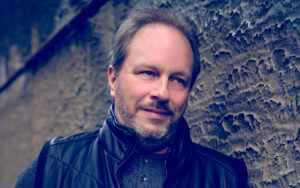Cirque du Soleil ‘Crystal’ Music Director Conrad Askland Q&A
In June of 2022 I was interviewed for the Berklee College of Music “Take Note” Online Magazine by Freesla Towle. “In this interview, Conrad Askland discusses live music production for Cirque du Soleil’s ‘Crystal,’ his time at Berklee Online, and conveying empathy with his original musicals.”
I was also able to tour the campus at Berklee College of Music in Boston, MA and also do a Q&A session with Berklee students studying Music Marketing. Thank you so much to Berklee College of Music for your warm hospitality and the opportunity to interact with students. And as a side note, I loved Boston and did many historical throughout the city. What a wonderful city Boston is!
Interview Excerpt:
You mentioned your experience with Ableton Live and composing. With ice skating and with the element of live music, are you constantly watching the performers to make sure your sounds are synced up with their movements? Is there a process of give and take with the action happening in the pit and then the action happening on the ice? Is there any room for improv? Or do you try to have the band function as a prerecorded track would?
Conrad Askland: It’s a little bit of all of that. Every show is set up slightly differently. For instance, in Varekai, it was a nine-piece band with singers. There were a lot of calls—hundreds in that show. Crystal is more of a technological show, as far as syncing the LX effects with lighting and projections. Our Ableton Live set at Crystal sends a lot of the time code to lighting, to trigger their programming changes. In Crystal, there are parts where sections play as a soundtrack and the actors know in their act, to time what they do, to the music.
There’s times where I trigger [sound] to something that happens in a certain act, a certain jump or a certain movement. Part of being a Cirque musician is understanding the parts that always have to be played the same because the artists depend on that for the complexity of a lot of the tricks they’re doing—then knowing the parts where you can improvise and be a little bit more free. In different parts of the show, there’s different approaches. It’s everything in the show, [it] happens as a soundtrack and [as] improvisations.
